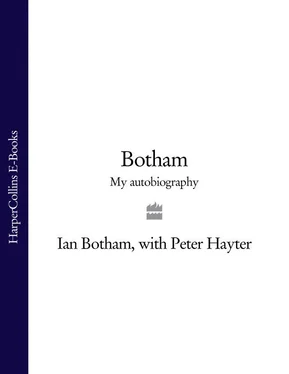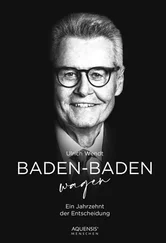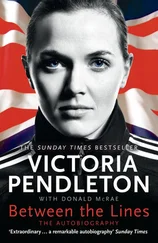The bottom line was pride: professional and patriotic. The West Indies were the one side against whom I felt I still had something to prove, both to myself and to the public. I had never fulfilled my potential against them as I should have done, and I wanted another crack. So I informed Micky of my availability and he accepted the news gratefully.
Then they proceeded to let me down badly. The night before the squad for the tour was due to be announced, Kath answered the phone. Ted was on the line.
‘Hello Ian,’ he said. ‘I’m afraid we’re not taking you to the West Indies.’
‘You what?’ I replied. ‘You begged me to make myself available for the winter tour and I told the South Africans where to go as well. And now you are saying you don’t want me after all.’
‘Er well, I didn’t ask you personally,’ he replied feebly.
I felt like I had been stabbed in the back. I went berserk and slammed the phone down on him. I don’t think I have ever felt so devastated. Seeing what a state I had worked myself into, Kath left the room; she knew I was not going to be fun to be around for a while. I was so enraged that if Ali Bacher had been sitting there with a contract and a pen I would have signed without a moment’s hesitation, and to hell with the consequences. I took myself off to the drinks cabinet and emptied a bottle of brandy in an effort to get it out of my system. Then, to really rub it in Micky and Ted later denied that they had persuaded me to make myself available. As far as I am concerned their denials were a lie.
To this day I’ve never been given a satisfactory explanation. From what I have been told it was Gooch, who replaced David Gower as captain when he was sacked at the end of the series and then also found himself out in the cold, who did not want me. Maybe I’ll never find out for certain. What I do know is that it was another phone call from Ted, on quite another subject, which finally removed any doubts that my England career was over.
A few days before the Trent Bridge Test against Australia in early July 1993, I answered the phone and, bearing in mind how he and the other selectors had studiously ignored my performances all summer, I was surprised to hear Ted on the other end of the line. That surprise quickly turned to amazement when I heard what he had to say. He asked me if I would be interested in taking the England A-team to Holland as captain.
I couldn’t believe what I was hearing. Trying to avoid a conversation with him because I had heard enough and didn’t want to give him the satisfaction of even discussing this farcical suggestion any further, I replied that I had prior engagements and left it at that. But when I put the phone down I was seething. Ted had spent half the summer messing me about and now he had the cheek to ask me to get involved in a clog-dancing mission. All I could think of was that this was supposed to be some sort of peace offering for excluding me from the Test side, or a fancy public relations exercise. Either way, I was thoroughly cheesed off. It was just about the last straw.
The Test side was losing and showing no signs of improving. When they picked the side for the third Test from a position of 2–0 down with four to go, the party of thirteen contained five uncapped players. And then I received this call from Dexter asking me if I would like to waste my time in Holland. I knew now that my last chance had gone forever. If Ted really didn’t want me to be part of the new set-up, why didn’t he have the decency just to say so, instead of all this messing around? In the back of my mind I can’t help thinking that the real reason why Gooch, Dexter and company did not want either David Gower, Allan Lamb or myself back in the picture was that, if we had succeeded, they would have been left with an awful lot of egg on their faces. Against that sort of reasoning I knew my international career was over no matter how well I performed.
Once I discovered where I stood, I started to think about Durham. I wanted to be sure in my own mind that I was doing the right thing by them.
To be totally honest, there was no point in my playing any more championship cricket because we were near the bottom of the table and the county needed to rebuild. Although I had proved to myself that I could still perform with the bat by scoring a century against Worcestershire, my last match had ended with a two-day defeat by Surrey at The Oval. I had batted twice on the second day, faced eight balls, and made eight runs. We lost by an innings and more than 200 runs. I knew I was not going to be around for the following season and started to think about retirement in a positive way. At Durham there were four or five players whose contracts were on the line, and it was not fair that I should take up a place in the team while they were in limbo and likely to have only a handful of games in which to prove their worth.
At that point eight championship games remained, and I reasoned that by leaving there and then those fringe players would get a fair crack at earning contracts for the next season. It would also help the club because it would give them a chance to assess the talents of those players as they planned ahead. With those thoughts in my mind, there was obviously not a lot of point in my carrying on.
There was one significant advantage in getting out of the game at this stage. I’m sure that it is the hope of every father who plays professional sport that he will one day be able to watch his son performing at the same or higher level. I have not proved the exception to the rule, even though I have never pushed Liam to play cricket, rugby, or tiddlywinks for that matter, and have merely made sure that I was available if he needed me.
But no one in the family, least of all Liam himself, was under any illusions about the problems he might have to confront simply because of who he was. The fact that he has always been a naturally gifted sportsman and he is my son, means that he has been prey to the long-lens treatment. To a certain extent there is no harm in that, as long as the photographers and newspapers involved haven’t over-stepped the mark (and, by and large, they haven’t).
True to form, however, just around the time of my retirement, the thing we feared most happened. Liam, having been selected to play for England Under-15s against the touring South African boys in 1992, had showed enough talent and promise to be offered a summer spell with Hampshire. On his first day at ‘work’, a 2nd XI match against Worcestershire at Southampton, his club captain Mark Nicholas told me he had never seen so many reporters at the county ground. Liam took the whole thing in his stride, even being relaxed enough to tell the assembled throng that he intended to be even better than his Dad. Cheeky bugger! Liam, being a Botham, then managed to play a good game as well as talk one by taking four wickets.
So far, so good. Then, a couple of weeks later, the inevitable happened. A friend of mine from one of the national papers told me that people had been asking questions about an alleged incident involving Liam and some other Hampshire cricketers in a nightclub. Here we go again, I thought.
Liam had been playing for Hampshire seconds against Warwickshire in Leamington Spa. One evening after the close of play he went with some of the players to a local nightclub. Because he wasn’t born yesterday he made sure that he drank only soft drinks, but someone there recognized him and told the manager he was under age. The manager talked to Liam, told him what had happened and informed him, regretfully, that if there were any complaints he would have to ask him to leave. Half an hour later, the same guy complained again and Liam duly left with the minimum of fuss.
Apparently, this non-event was enough to get the Sunday Mirror terribly excited and a story duly appeared along the lines of Liam Botham, son of cricketing legend Ian, blah, blah, blah … being kicked out of a nightclub. What bothered me most was that this kind of thing is actually believed by people who should know better. These ignorant idiots, who for some reason have convinced themselves to believe everything they have read about me over the years, turn around and say ‘There, look at Liam Botham, like father like son’, and the mud sticks.
Читать дальше












